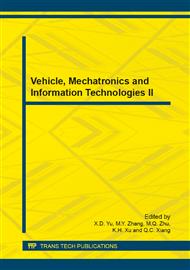p.3023
p.3029
p.3033
p.3036
p.3040
p.3044
p.3049
p.3053
p.3057
IPMT, an IPv6 Packet Manipulation Tool: Design Considerations and Applications
Abstract:
To facilitate research into IPv6 protocol, we propose IPMT in this paper, an IPv6 packet manipulation tool that allows rapid encode and decapsulation of IPv6 frames. IPMT offers capabilities of IPv6 packet manipulation, such as packet encapsulation, packet decapsulation, and packet trace. We mainly focus on IPv6 protocols because most popular network tools that are currently used don't support IPv6. We describe the main features of IPMT and demonstrate how the IPMT programming class enables users to easily develop portable IPv6 packet analysis tools without needing to consider the details of the capture format, file compression or intermediate protocol headers. Unlike other popular network tools, IPMT can almost decode all layers all at once. We divide IPMT into two modules and implement the tool and test the tool in a real test scenario to show that the tool works well. At the same time, we design a versatile way of storing decoding information result. As a result, we conclude that IPMT is a valuable contribution to the passive measurement community that will aid the development of better and more reliable IPv6 analysis and network monitoring tools.
Info:
Periodical:
Pages:
3040-3043
Citation:
Online since:
March 2014
Authors:
Keywords:
Price:
Сopyright:
© 2014 Trans Tech Publications Ltd. All Rights Reserved
Share:
Citation:


